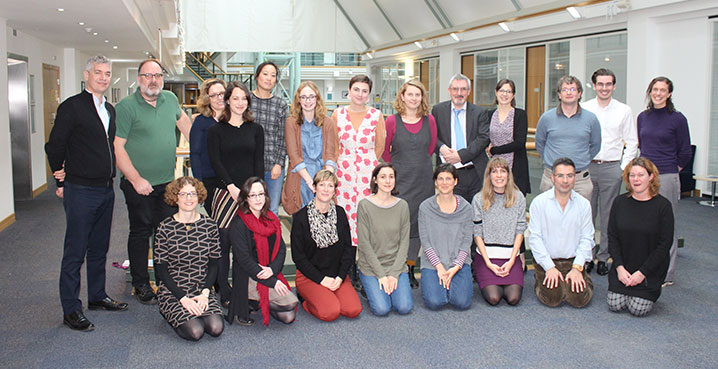
Research staff at The National Archives
Many people are aware that The National Archives provides researchers with access to its collections. But how many realise that we are a researching institution in our own right?
As an Independent Research Organisation, we’re eligible to apply to the UK research councils for funding. That means that our members of staff are getting involved in a variety of research projects and developing research expertise, often in collaboration with universities. Our research and academic collaboration is underpinned by our research priorities, which we’ve designed to help us respond to some of the biggest opportunities and challenges we face as an archive.
Colleagues who do research have a spectrum of skills and interests, and levels of experience and confidence vary. Different colleagues need different types of research support at different times. We piloted our first Researcher Development programme last autumn for staff members who had had some research experience (whether academic or non-academic), or who had done research-related work, and were looking to increase their skills and confidence.
We offered the programme as foundation-level research training for colleagues to develop their skills and share best practice. One of our aims was to build The National Archives’ capacity for future research by increasing the pool of active researchers across the organisation.
While the programme was explicitly about research in an academic context, we also reflected on what research means for us. We are in a unique position to do research as an archive, Independent Research Organisation, government department and cultural heritage institution with the leadership role for the archive sector.
Bringing together 20 colleagues from across The National Archives, the programme ran over six workshop sessions to explore the different stages of the research lifecycle:
- Navigating the research landscape – horizon-scanning, networking and the Higher Education sector
- Research questions and making the case, including the grant funding landscape
- Research methods and approaches
- Using research results – impact, engagement, reflection and evaluation
The sessions consisted of a mixture of talks and interactive activities. We heard from external speakers from organisations including the V&A and the University of Reading. Colleagues also spoke to the cohort to share their research experiences and challenges.
In addition to exploring the stages of research, the programme sought to uncover the meaning of research to The National Archives. It explored broad definitions of research – whether records-based, practice-based or addressing professional concerns – and showcased the different research disciplines, methodologies and collaborations we are currently involved in.
The cohort collectively acknowledged the importance of effectively sharing research and ensuring that it has real-world benefits. They agreed that The National Archives is strongly placed to undertake applied research and solve practical problems, which can make a difference to practice, policy and the public.
The programme was a pilot, so we told the cohort that we’d learn as much from them as they did from us, and we encouraged them to feed back their ideas and comments. The feedback was very positive and confirmed us in our intention to run the programme again later this year. Participants told us they’d grown in confidence and developed new skills and innovative approaches to research, including more collaborative methodologies.
Some of them are already applying what they’ve learned by getting involved in research projects or using different types of dissemination and engagement. We’re really looking forward to seeing what they achieve next.
If you’re interested in finding out more about our research, please visit our research and academic collaboration pages or follow @UKNatArcRes for updates.